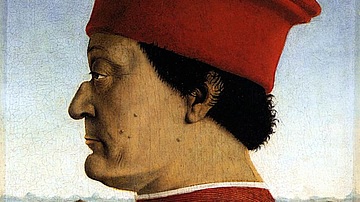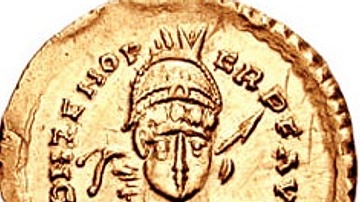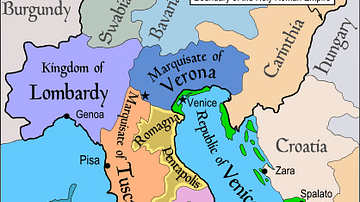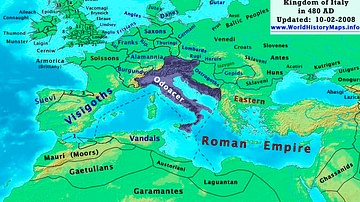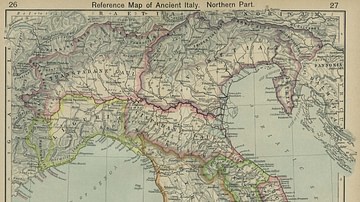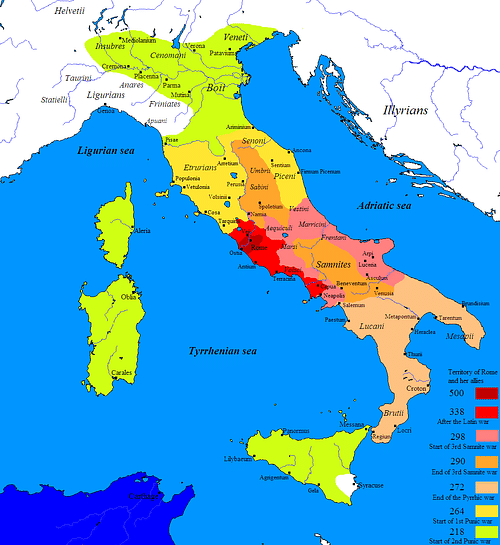
The Italian Peninsula or Apennine Peninsula is one of the three peninsulas of Southern Europe (the other two being the Iberian Peninsula and Balkan Peninsula), spanning 1,000 km from the Po Valley in the north to the central Mediterranean Sea in the south. The peninsula is bordered by the Tyrrhenian Sea on the west, the Ionian Sea on the south, and the Adriatic Sea on the east. The interior part of the Apennine Peninsula consists of the Apennine Mountains, from which it takes its name, the northern part is largely plains and the coasts are lined with cliffs.
Excavations throughout Italy reveal a modern human presence dating back to the Palaeolithic period, some 200,000 years ago. In the 8th and 7th centuries BCE Greek colonies were established all along the coast of Sicily and the southern part of the Italian Peninsula. Subsequently, Romans referred to this area as Magna Graecia, as it was so densely inhabited by Greeks.
Ancient Rome was at first a small agricultural community founded circa the 8th century BCE that grew over the course of the centuries into a colossal empire encompassing the whole Mediterranean Sea, in which Ancient Greek and Roman cultures merged into one civilization. This civilization was so influential that parts of it survive in modern law, administration, philosophy and arts, forming the ground that Western civilization is based upon. In its twelve-century existence, it transformed itself from monarchy to republic and finally to autocracy. In steady decline since the 2nd century CE, the empire finally broke into two parts in 285 CE: the Western Roman Empire and the Byzantine Empire in the East. The western part under the pressure of Goths finally dissolved, leaving the Italian peninsula divided into small independent kingdoms and feuding city states for the next 14 centuries, and leaving the eastern part sole heir to the Roman legacy.

